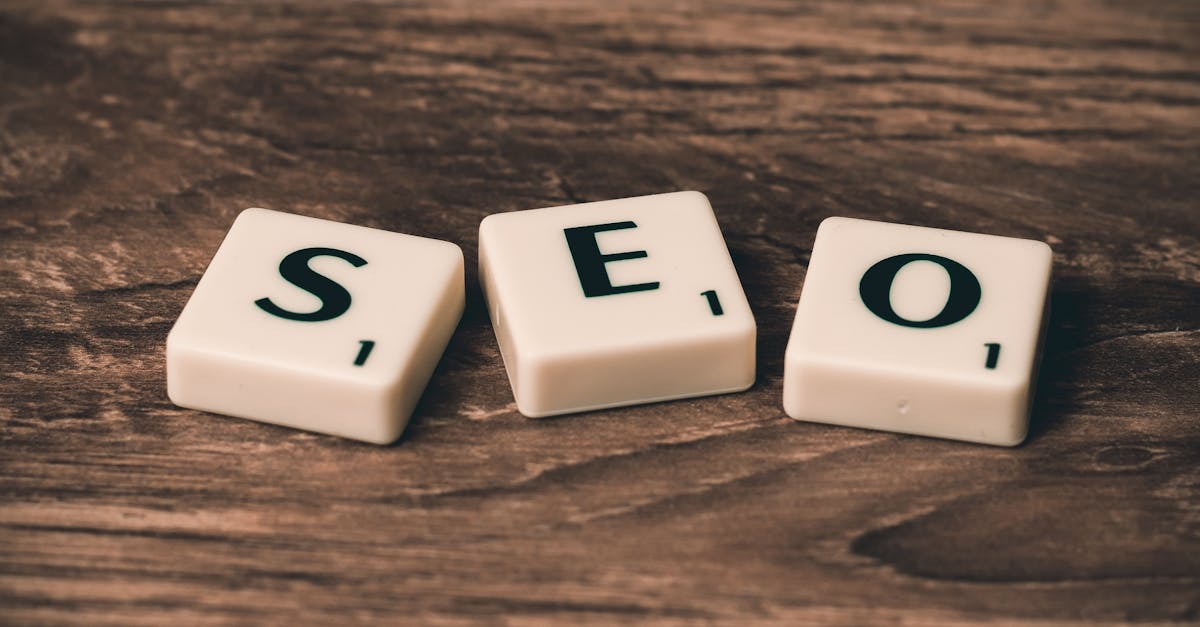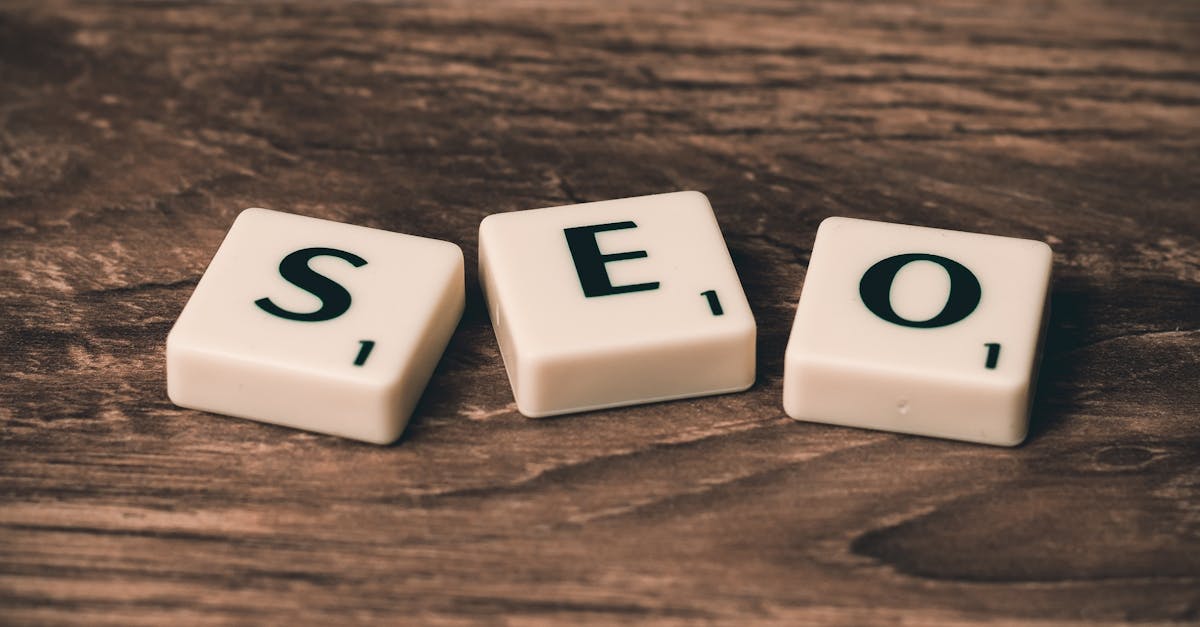
Table Of Contents
Local SEO
Local SEO focuses on optimising a business's online presence to attract more customers from relevant local searches. This strategy involves tailoring content, keywords, and metadata to the specific geographical area a business operates in. By leveraging local search terms, businesses can enhance their visibility on search engines, ensuring they stand out when potential customers search for services or products in their vicinity.
Targeting regional audiences through Local SEO often requires a deep understanding of the community's preferences and needs. Using tools like Google My Business allows businesses to manage their online information, respond to reviews, and provide crucial details like operating hours and location. This not only improves local rankings but also fosters customer trust and engagement, making it essential for businesses looking to make an impact in their local market.
Targeting Regional Audiences
Targeting regional audiences involves tailoring online content to meet the specific needs of local users. This approach enables businesses to connect with potential customers within a defined geographic area. By utilising tools such as Google My Business, companies can enhance their visibility in local search results. Effective Search Engine Optimization (SEO) strategies include using region-specific keywords and creating content that addresses local interests or events.
Local reviews and community engagement are also critical when aiming to attract regional audiences. Encouraging satisfied customers to leave positive feedback can significantly impact online reputation. Incorporating local links and partnerships further strengthens a brand's presence in community searches. Prioritising Search Engine Optimization (SEO) with a regional focus not only drives more traffic but also fosters a sense of trust among local consumers.
Ecommerce SEO
E-commerce SEO focuses on optimizing online stores to enhance visibility in search engine results. The process involves implementing various strategies that attract potential customers to product pages, category pages, and the overall website. Effective keyword research is crucial, ensuring that merchants target terms that align with their offerings. This type of SEO also emphasises the importance of metadata, product descriptions, and high-quality images to enhance user experience and encourage conversions.
Another key aspect of e-commerce SEO is the optimisation of website structure and internal linking. Search Engine Optimization (SEO) experts often recommend a clear hierarchy and properly formatted URLs to improve navigation. Additionally, mobile optimisation has become essential, as a significant portion of online shopping occurs on mobile devices. The loading speed of a site plays a vital role in retaining customers, making technical enhancements an indispensable part of any e-commerce SEO strategy.
Optimising Online Stores
Optimising online stores requires a strategic approach to Search Engine Optimization (SEO). Ensuring product pages are well-structured and contain relevant keywords helps attract the right audience. High-quality images and detailed product descriptions enhance user experience and improve engagement. Additionally, implementing schema markup can provide valuable information to search engines, making it easier for potential customers to find your products.
Mobile-friendliness is critical in today's shopping landscape, as many consumers browse and shop using their smartphones. A responsive design ensures optimal performance across devices, which can positively impact search rankings. Faster loading times contribute to a better user experience, reducing bounce rates and increasing the likelihood of conversions. Regularly updating content and maintaining an active presence on social platforms can also bolster visibility, driving more traffic to the store.
Content SEO
Content SEO focuses on creating high-quality and relevant material that aligns with the intent of the audience. This strategy involves researching keywords that potential visitors are using and incorporating them naturally into the content. Quality content not only engages readers but also encourages them to share it, enhancing visibility and attracting organic traffic. Well-structured articles, blog posts, and other forms of content are essential in improving rankings on search engine results pages.
Incorporating elements such as headers, bullet points, and images can further optimise content for both search engines and users. Effective Content SEO also considers the competitive landscape, analysing what similar sites are doing well. Regular updates and fresh content play a significant role in keeping a site relevant and authoritative. By focusing on both quality and optimisation, brands can establish themselves as leaders in their respective fields through strategic Search Engine Optimization (SEO).
Crafting Quality and Relevant Material
Creating quality and relevant content is crucial for effective Search Engine Optimization (SEO). This type of content should engage users and provide them with valuable information that aligns with their search intentions. By understanding what users are looking for, businesses can craft articles, blogs, and other materials that directly address their needs. High-quality content not only improves the user experience but also encourages sharing and interaction, which can significantly boost a website's visibility.
Moreover, it's essential to integrate targeted keywords naturally within the content. This ensures that the material is optimised for search engines while still being readable and enjoyable for the audience. Over-stuffing keywords can lead to a poor user experience and potential penalties from search engines. Therefore, focusing on creating informative, well-structured, and relevant content is key to successful Search Engine Optimization (SEO).
FAQS
What does SEO stand for?
SEO stands for Search Engine Optimisation, which is the practice of enhancing a website to improve its visibility on search engines like Google.
Why is Local SEO important?
Local SEO is crucial for businesses that operate in specific geographic areas, as it helps them attract local customers by optimising their online presence for location-based searches.
How can E-commerce SEO benefit my online store?
E-commerce SEO enhances the visibility of your online store in search engine results, leading to increased traffic, higher conversion rates, and ultimately more sales.
What is the role of content in SEO?
Content plays a vital role in SEO as high-quality, relevant material improves a website's ranking in search engines, attracts visitors, and engages potential customers.
Can I do SEO on my own, or do I need a professional?
While you can certainly learn and implement SEO strategies on your own, hiring a professional can provide expertise and save you time, especially if you're looking for more advanced techniques or a comprehensive strategy.

















































